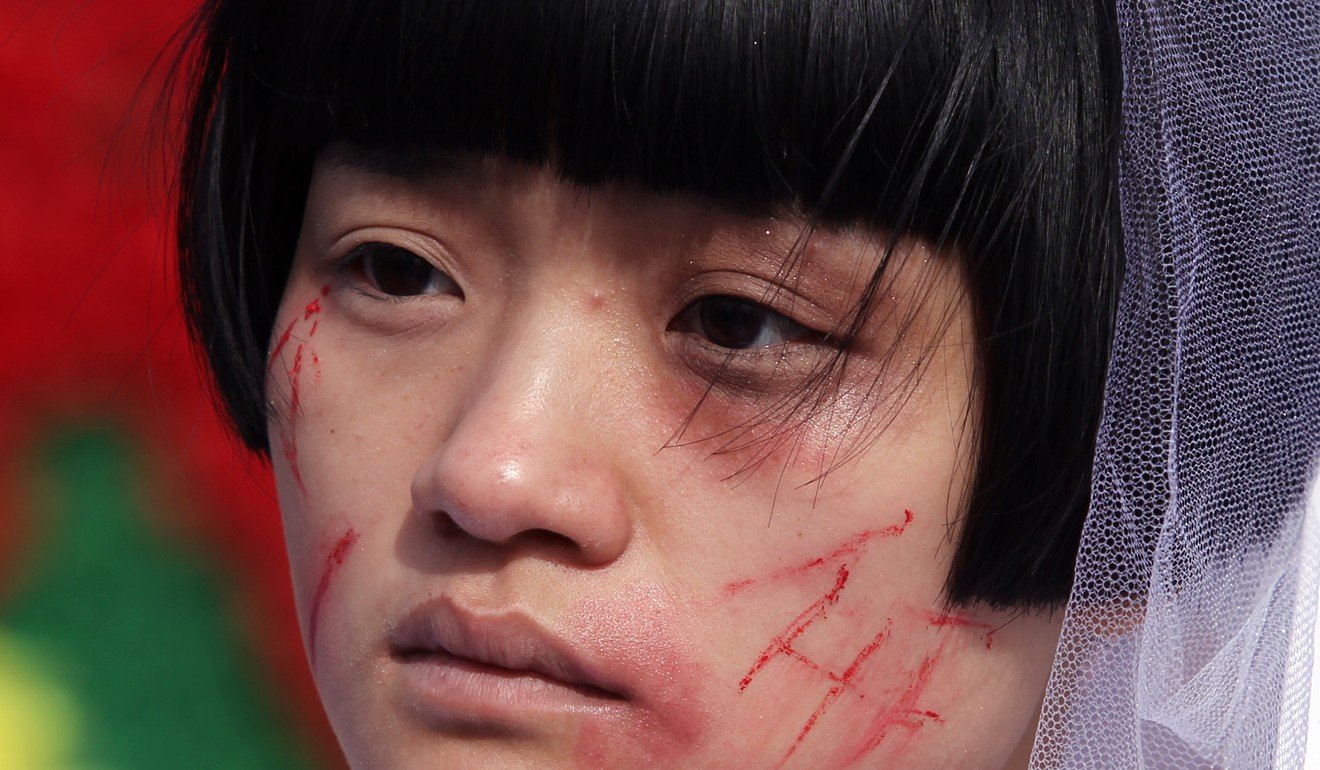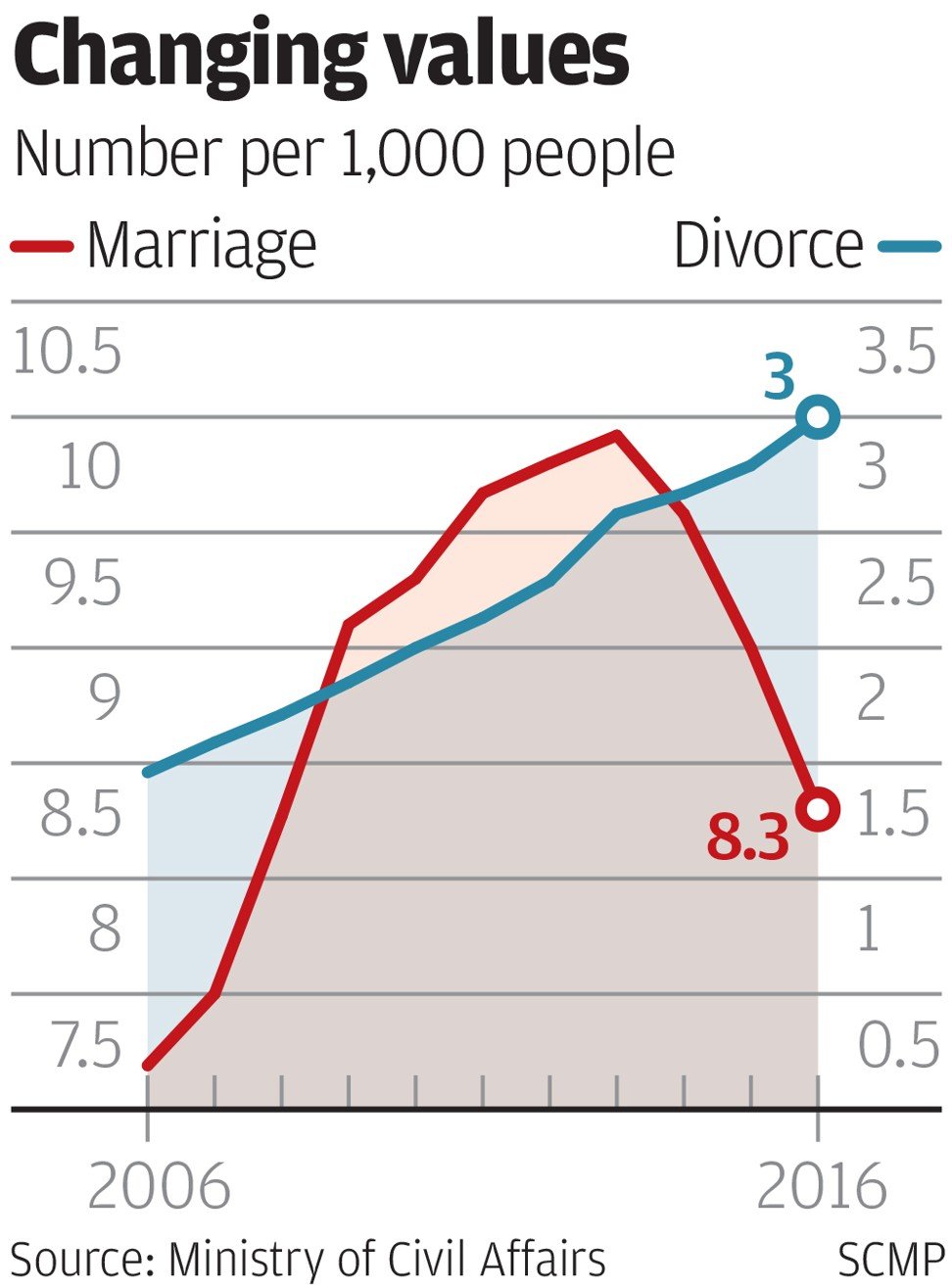
China’s divorce rate is spiking because women no longer have to accept unsatisfying marriages. This should be celebrated, not stifled
- Due to amended laws and declining stigmas, women are the main initiators of China’s climbing divorce rate
- Alarmed authorities are now taking countermeasures, but women’s freedom should not be sacrificed for ‘social stability’
During many of my parents’ arguments, my mother used to say, pointing an accusing finger at my father: “Marrying you is the worst thing that happened in my life!” I’ve always been sympathetic to her since my father was indeed a lazy, feckless and ill-tempered man.
Yet, mother never contemplated divorce since she held the traditional belief of “marry a dog, stay with a dog; and marry a rooster, stay with a rooster”.
Women in China were only granted the right to divorce in 1950, when the victorious Chinese Communist Party introduced the New Marriage Law. Throughout the Mao era, only a small percentage of women exercised that right, and usually for political reasons.
But things are changing in China. In fact, a soundless revolution is playing out. In early November, Zhou Qiang, the president of the Supreme People’s Court, revealed in a speech that roughly 74 per cent of divorces in China are initiated by women.
I raised a toast with my daughter over the news. I regard it as an achievement in the liberation of Chinese women because they are now more assertive in pursuing what they want. They are no longer willing to put up with an unhappy marriage, the way our mothers did. The trend of women seeking a divorce runs against the traditional culture, where women are expected to stay in a marriage, good or bad.
Three years ago, Ye Hong, a 38-year-old artist, divorced her civil servant husband, after an accidental discovery of pornographic images on his computer. She was shocked. Her mother, who had endured her artist husband’s numerous affairs, urged her to think about their young son and her “dim prospect” of remarrying in middle age. But Ye asked for a divorce. “I cannot stay with a man for whom I’ve lost respect,” she said.
Criminalising talaq Muslim divorce is overkill
Her marriage lasted 13 years. Many unions in China don’t last that long. In his speech, Zhou Qiang mentioned that the so-called “seven-year itch” has become a “three-year itch” in China as plenty of marriages unravel quickly.
The rate accelerated after 2003, when China made the divorce process easier and faster, including scrapping the employers’ approval requirement. In 2016, 4.2 million couples, mostly urban dwellers, went their separate ways.
K-drama couple’s divorce is a reminder romance isn’t enough
Although gradually easing, there’s still stigma attached to divorce. My mother never told the neighbours about my divorce, which took place almost 14 years ago. “Why should I hang out the dirty laundry?” she would say. For her, divorce was a disgrace for the woman and her family. Luckily, these days, her view has become less common and divorce is more tolerated, especially in cities.

In 2016, the Supreme People’s Court instructed judges to balance respecting people’s wishes with defending stable families, which, in their view, is the basis for a harmonious society. Last year, local courts introduced methods such as a cooling-off period, free mediation and even a quiz to deter couples from seeking a divorce.
Arranged marriages: ‘dating agencies’ are the modern matchmakers
There’s little surprise that more than half of the filed divorce cases were rejected by courts.
The government shouldn’t have bothered to interfere. Of course, divorce should never be taken lightly, especially when children are involved. Still, restricting wives from getting out of a bad marriage will reduce women’s freedom and agency. In any case, it is a woman’s civil right, which must be respected. Even if divorce is not good for society, are miserable women better for it?
The fact that women are driving divorce in China is in line with the trajectory of a developing country in the middle of rapid modernisation. In developed nations such as US and Britain, more women file for divorce than men. It’s not that terrifying in a modern world, where the types of family have become more diverse.
Lijia Zhang is a rocket-factory worker turned social commentator, and the author of a novel, Lotus


